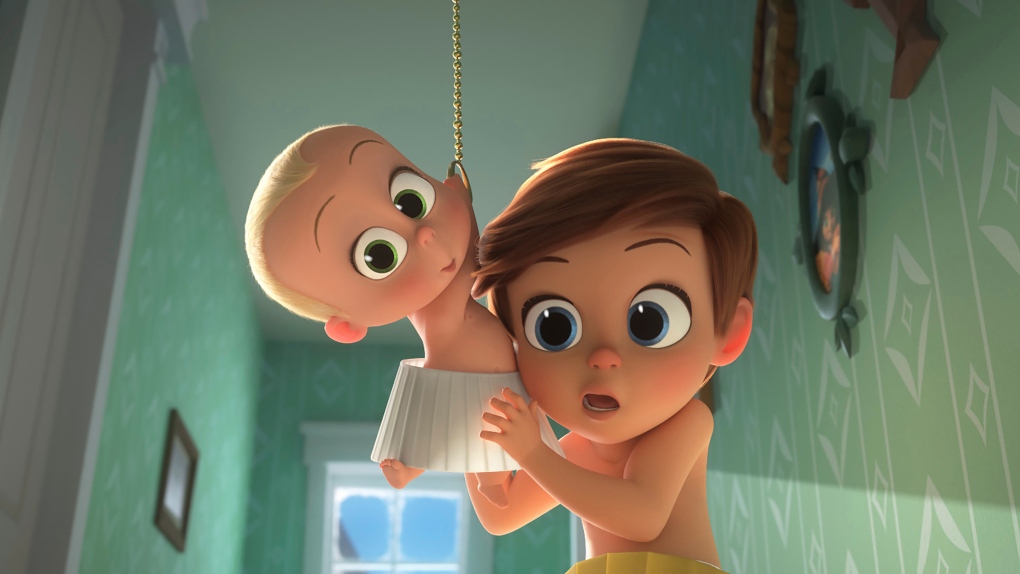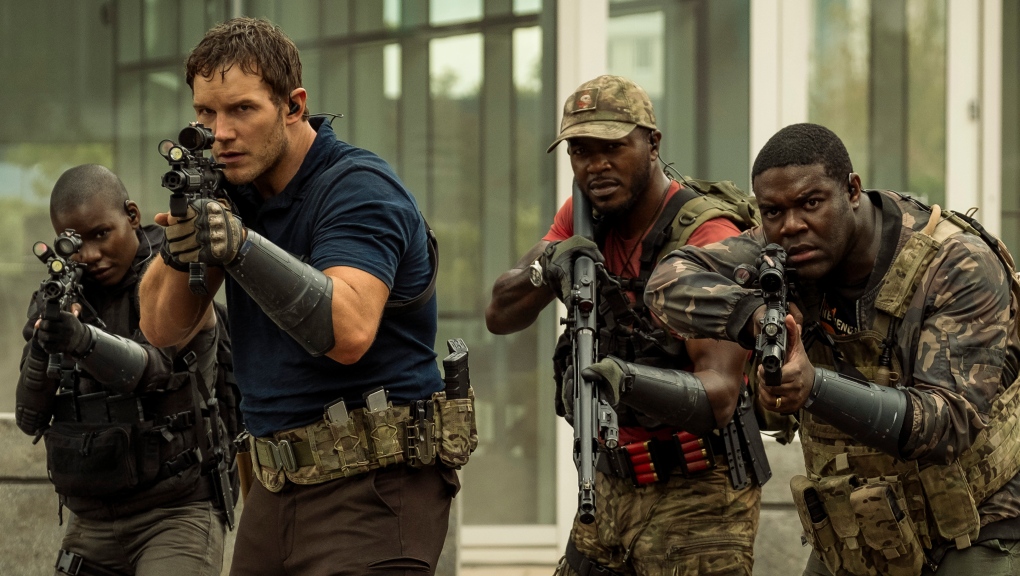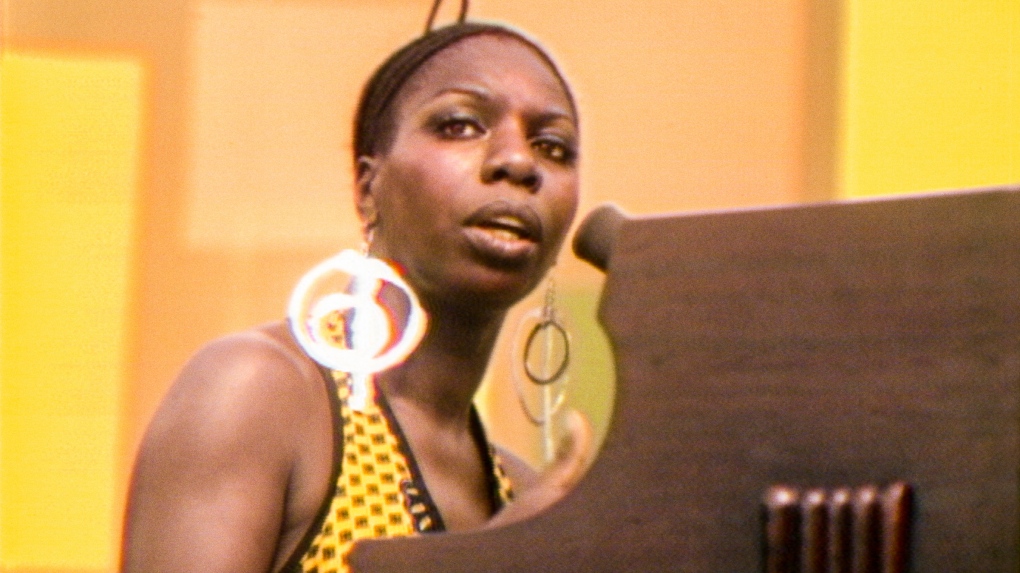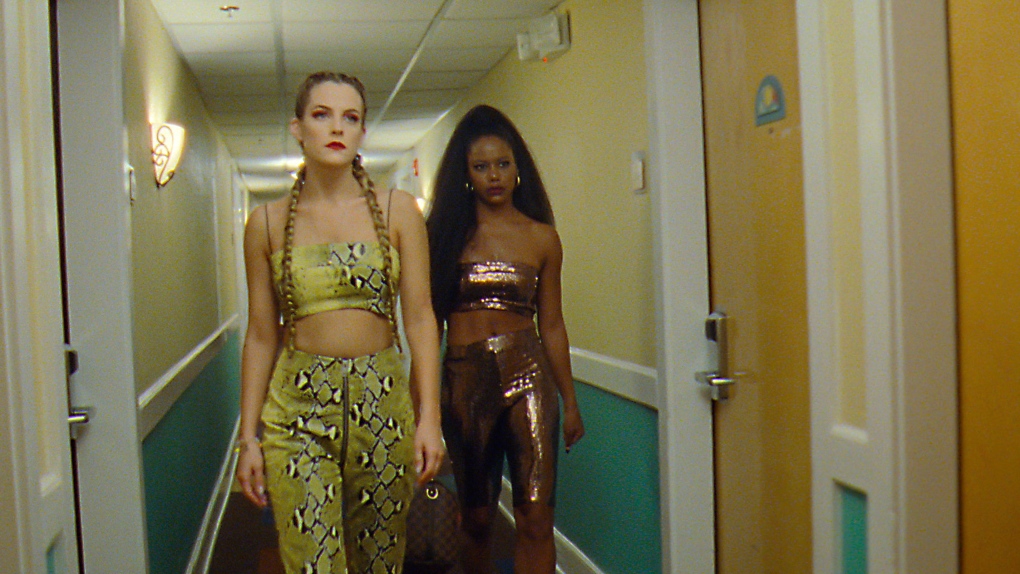THE BOSS BABY: FAMILY BUSINESS: 3 ½ STARS
 This image released by DreamWorks Animation shows The Boss Baby/Ted Templeton, voiced by Alec Baldwin, left, and young Tim Templeton, voiced by James Marsden, in a scene from "The Boss Baby: Family Business." (DreamWorks Animation via AP)
This image released by DreamWorks Animation shows The Boss Baby/Ted Templeton, voiced by Alec Baldwin, left, and young Tim Templeton, voiced by James Marsden, in a scene from "The Boss Baby: Family Business." (DreamWorks Animation via AP)
They grow up so fast, don’t they? It was just four years ago that the Templetons welcomed a new child into the family. Ted was an odd baby who wore a suit onesie, carried a briefcase and spoke the language of the boardroom.
“I may look like a baby, but I was born all grown up,” he said in “The Boss Baby.”
Cut to “The Boss Baby: Family Business,” now playing in theatres. Older brother Tim (voiced by James Marsden) is now an adult and estranged from his “boss” baby brother Ted (Alec Baldwin). Their lives have taken different paths. Tim is now married to Carol (Eva Longoria) and a suburban dad to seven-year-old daughter Tabitha (Ariana Greenblatt) and infant Tina (Amy Sedaris). Ted, unsurprisingly, is a hedge fund manager and workaholic.
Tabitha seems to be following in her uncle’s footsteps, attending the Acorn Center for Advanced Childhood. She’s at the top of her class but what she doesn’t know is that Tina, the baby, is a spy for BabyCorp.
“I’m in the family business,” she says. “And now you work for me Boomers!”
Her mission? Find out exactly what’s up at Tabitha’s school and if its founder, Dr. Erwin Armstrong (Jeff Goldblum) is really planning a baby revolution. “We can make parents do whatever we want,” he yells.
The investigation brings the brothers, who drink a formula that turns them back into toddlers, together and reveals deep bonds.
“Just because you grow up,” says Tina, “doesn’t mean you have to grow apart.”
Like all sequels “Boss Baby: Family Business” is bigger, louder and more frenetic than the original. In a blur of colour and action, it uses kid-friendly humour and inventive animation to re-enforce a standard lesson about the importance of family.
The messaging may be generic, but the solid voice work from Marsden, Baldwin, Sedaris and Goldblum (who seems to be having a blast) inject vibrant life into it. This is essentially a one-joke premise dragged kicking and screaming into feature length, but director Tom McGrath expands the world of the first film (which he also directed) staging scenes with baby ninjas and inside Tim’s head. There are no big surprises really, but he does keep much of the mischievousness that made the first film so enjoyable.
“The Boss Baby: Family Business” moves at a rapid speed that may exhaust parents, but should keep young minds, who may have followed the adventures of the Boss Baby series on Netflix for the last four years, entertained.
THE TOMORROW WAR: 3 STARS
 This image released by Amazon shows Chris Pratt, from second left, Edwin Hodge and Sam Richardson in a scene from "The Tomorrow War." (Frank Masi/Amazon via AP)
This image released by Amazon shows Chris Pratt, from second left, Edwin Hodge and Sam Richardson in a scene from "The Tomorrow War." (Frank Masi/Amazon via AP)
“The Tomorrow War,” the new Chris Pratt sci-fi action film now streaming on Amazon Prime, is a unicorn. It’s a big-budget blockbuster not inspired by a comic book or video game. The story resonates with echoes of “The Terminator,” “Alien” and any number of father-daughter dramas, but while it may feel familiar, it’s a rarity, an original movie that doesn’t set itself up for a sequel.
Set in December 2022, Chris Pratt is Dan, biology teacher, Iraq War vet, husband to Emmy (Betty Gilpin) and father to young daughter Muri (Ryan Kiera Armstrong). One night, they’re gathered around the television watching a game when the match is interrupted by visitors from the 2052 with a “cry for help across time.”
“We are from thirty years from the future,” says the spokesperson. “We are at war and our enemy is not human. We are losing. In eleven months, all will be lost unless you help us. You are our last hope.”
The planet goes into a panic. A worldwide draft is instituted and soon Dan is enlisted to jump thirty years forward to fight an alien species, named White Spikes, he knows nothing about. The tour of duty is only seven days, but few survive.
“You are not fighting for your country,” he’s told. “You’re fighting for the world.”
Dropped into the future in the middle of an alien hotspot, Dan’s military training kicks in. With the help of Col. Forester (Yvonne Strahovski), he survives but when they put their heads together, they realize the key to beating the aliens isn’t warfare, it’s science! The real solution is a poison serum that neuters the beasts. But, the question with time twisted logic is, can they make enough of it in time to stop the war before it even happens?
“We are food,” Forester says, “and they are hungry.”
I have written around a MAJOR spoiler. Time travel stories have the benefit of playing around with their character’s timelines but you’ll hear nothing about that here. Suffice to say, Dan makes a life-changing discovery while stationed in the future and it affects everything he does from that moment onward, and I suppose, in the time that has already happened. (Time travel movies can get complicated.)
Moving on to the broad strokes.
There is a lot going on in “The Tomorrow War.”
It has Marvel-style large action scenes mixed with horror—the White Spikes, and their weird gooey puke yellow blood, are plentiful and relentless—family drama—"I’m no hero,” Dan says, “I just want to save my daughter.”— and even a child genius who provides a key piece of information in the war against the aliens. Director Chris McKay and screenwriter Zach Dean jam pack every scene with something, whether it’s Pratt’s zippy one-liners or a city crumbling during an airstrike or doing battle in a cave with an angry White Spike.
It feels like all peaks with very few valleys.
To lure us in and make us care about the characters, there have to be moments where things aren’t blowing up. McKay provides some of those, but Dean doesn’t give us much in the way of character arcs in those quieter moments. Things happen to the characters, constantly, but rarely is anything of consequence revealed about them. “Glow’s” Betty Gilpin, for instance, is present, and has a name, Emmy, but is given very little to do except be Dan’s wife. More character work may have given us a reason to care when bad things happen.
Having said that, there are some fun moments of over-the-top alien action. A showdown between Dan, his father (J.K. Simmons) and a seemingly indestructible White Spike is a wild ride, but generic characters and the predictability of the story blunts much of the film’s excitement.
SUMMER OF SOUL (…OR, WHEN THE REVOLUTION COULD NOT BE TELEVISED): 4 ½ STARS
 This image released by Searchlight Pictures shows Nina Simone performing at the Harlem Cultural Festival in 1969, featured in the documentary "Summer of Soul." (Searchlight Pictures via AP)
This image released by Searchlight Pictures shows Nina Simone performing at the Harlem Cultural Festival in 1969, featured in the documentary "Summer of Soul." (Searchlight Pictures via AP)
Fifty-two years ago, during a hot, sticky New York summer, a music festival was filmed for posterity in front of a gigantic crowd. No, it’s not “Woodstock.”
That happened, but I’m talking about The Harlem Cultural Festival, a star-studded, six-week extravaganza featuring everyone from Stevie Wonder and the 5th Dimension to Mahalia Jackson and Nina Simone that drew tens of thousands of people to Mount Morris Park (now Marcus Garvey Park). The concerts were filmed, but when no taker could be found for the footage, it sat, unseen for fifty years in the basement of a producer named Hal Tulchin.
Now rescued and wrestled into a two-hour documentary by Ahmir "Questlove" Thompson of the Roots, “Summer Of Soul (…Or, When The Revolution Could Not Be Televised),” now on Disney+, brims with excitement, pain, hope and, of course, dynamic performances and great music.
Part concert documentary, it’s a must-see if only for Nina Simone’s performance of “Backlash Blues.” It is just one of the dozens of musical numbers, all expertly curated by Questlove, but here there is no sense of nostalgia, just the pure power of performance.
Mahalia Jackson and Mavis Staples bring another emotional highlight, duetting on Martin Luther king Jr.’s favorite gospel song “Take My Hand, Precious Lord.” The civil rights leader was assassinated the year before, and their singing brings out both the beauty and the ache inherent in the song and the circumstances.
Also deftly woven in are remembrances from people who were there, on stage and off. Marilyn McCoo wipes away a tear as she watches the footage of her band The Fifth Dimension. New York Times journalist Charlayne Hunter-Gault helps set the scene politically and culturally while
Rev. Jesse Jackson recalls the story behind the electric performance pf “Take My Hand, Precious Lord.”
Far from simply using the music and the festival as a framework for the film, Questlove mixes in, with the expert hand of a DJ who understands rhythm and syncopation, archival news footage and contemporary interviews. This approach provides much needed historical context and makes the effect of the music even more impactful.
The Harlem Cultural Festival took place at a time when music was changing—you hear the influences of Latin Jazz and soul and gospel, all brewing together to create something new—and as the world changed. “Summer of Soul” is the rare music documentary that balances the historical with the musical with such grace and power.
ZOLA: 3 ½ STARS
 This image released by A24 shows Riley Keough, left, and Taylour Paige in a scene from "Zola." (A24 Films via AP)
This image released by A24 shows Riley Keough, left, and Taylour Paige in a scene from "Zola." (A24 Films via AP)
It had to happen. We’ve seen movies based on comic books, board games and trading cards. Now comes “Zola,” a darkly comedic crime drama, now playing in theatres, that was inspired by a 148-tweet thread by A’Ziah King a.k.a. @zolarmoon.
“You wanna hear a story about why me and this b*tch here fell out?” she writes. “It’s kind of long but full of suspense.”
When we first meet Zola (Taylour Paige) she is a Detroit waitress trying to take an order from Stephani (Riley Keough) and her friend. Stephani is flirty, playfully inappropriate and soon the two bond. Both are exotic dancers, and share a similar world view. The very next day Stephani calls with an offer. She invites Zola on a road trip to Florida to perform at a strip club and make some fast cash.
Needing money, Zola hastily agrees, but suspicions are raised when Stephani’s hapless boyfriend Derek (Nicholas Braun) and the mysterious X (Colman Domingo) come along for the cross-country drive.
Once in Florida, it becomes clear that Zola is in over her head, the target of a set-up by Stephani and X. It’s going to be a long, dangerous weekend for everyone involved.
“Zola” is much more than a Twitter storm. Director Janicza Bravo (who also co-wrote the script with Jeremy O. Harris) sets a frantic pace, unfurling the story with urgency, humour and clever sound design. The result is a slick look at a gritty story that places us in Zola’s shoes. She made a bad decision to go south with someone she barely knew, but now, like her, we’re caught up as things spin out of hand.
The tour guides for this chaotic trip are Paige and Keough. They take turns stealing scenes, filling the screen with bravura performances.
Paige plays Zola as impetuous but strong, vulnerable but powerful. Zola could have been played as a victim, but Paige flips that script, allowing her character to be in control in an out-of-control situation.
The performance is at odds with Keough’s work. She embraces Stephani’s messiness, playing up the cavalier attitude that masks her character’s pain. It’s a nervy performance, both funny and tragic.
“Zola” is a roller-coaster ride up until its final moments. An abrupt ending leaves many unanswered questions, but until then, it feels like the most in-the-moment 2021 movie to date.
LET US IN: 2 ½ STARS
 Makenzie Moss is seen in the film "Let Us In." (Samuel Goldwyn Films)
Makenzie Moss is seen in the film "Let Us In." (Samuel Goldwyn Films)
In the tradition of “Goosebumps” and “Goonies” comes “Let Us In,” a young adult horror film based on an urban myth and now playing on VOD.
Makenzie Moss stars as Emily, a Grade seven student who carries around guilt related to the mysterious disappearance of her sister. Her best friend, child genius Christopher (O'Neill Monahan), is working on a device to communicate with aliens, which is well timed, given that their town is overrun with space vampires known as the “black-eyed kids.” They resemble pale skinned, hoody-wearing teens who spend too much time in the basement playing video games, but don’t let looks deceive.
Based on an urban myth, these kids have black, soulless eyes, alabaster skin, the toxic odor of “rotten molasses and pig droppings,” and, as if that wasn’t creepy enough, they harvest human adolescents, sending them away through a space portal.
Like earthbound vampires, the black-eyed kids don’t like bright lights and have to be invited in to your home, hence the title “Let Us In.” Sounds polite, no? Well, there’s also this. They don’t like to be told ‘no’ and will terrorize you until you say ‘yes’ and invite them onto your property.
With kids going missing all over town, Emily and Christopher use their wits to wage war with the aliens.
“Let Us In” has all the earmarks of young adult horror. There’s a creepy old guy (Tobin Bell) in a haunted house, plenty of jump scares, creaky doors and a child prodigy. What is doesn’t have is a lot of thrills. The lo-fi story relies on throwback practical effects, dark contact lenses and loads of alabastrine make-up, but the hair on the back of your neck will never stand up.
Perhaps it’s because the space vampires don’t seem particularly menacing. A stern talking to by any of the adults in the movie and I bet they’d all run to their rooms.
So, no big scares, but it’s fun to see Tobin Bell, who played Jigsaw in the “Saw” series, provide his character’s crazy backstory and loads of exposition in a scene that serves no real purpose other than to allow the veteran actor to have a bit of fun with some flowery language.
“Let Us In” is a generic kid’s horror film with a good idea, but not enough scares.














































